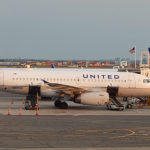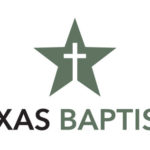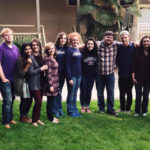WASHINGTON (RNS)—As college students return to campus, a new study suggests some could be in danger of losing their religion.
Economics professor Miles Kimball and researchers from the University of Michigan Institute for Social Research determined certain academic majors can influence students’ religiosity—positively or negatively—over time.
More than 26,000 U.S. students responded to questions regarding importance of religion and religious attendance over a six-year period, beginning in high school and continuing through the year after college graduation.
Compared to survey participants who did not attend college, education majors showed the most dramatic increase in religious attendance and religious importance, followed by students in vocational and clerical programs, then business majors.
Biology, engineering, physical science and math majors all show an increase in religious attendance and a decrease in religious importance.
Humanities and social science majors’ religious attendance dips slightly, and religious importance plunges.
College is an appropriate setting for measuring religious trends, Kimball said, because a campus acts like a microcosm, with each academic major representing a real-world profession.
“College is one of the few times you have a neat little label about the sorts of ideas a person has come in contact with,” he said.
Kimball admitted that the survey utilized “fairly crude data,” and said the findings more accurately reflect students’ contact with “science, developmentalism and postmodernism” than religious experience.
Social science and humanities majors—which generally employ the scientific method, are committed to truth, freedom and progress, and probe questions of truth and morality—are more likely to prompt students to question their religious upbringings and ultimately become less religious than other majors, Kimball asserted.
Sign up for our weekly edition and get all our headlines in your inbox on Thursdays
A 2004 UCLA study tracked students’ religious growth according to major. Consistent with Kimball’s study, education majors led the way in religious and spiritual growth over the first three years of college.
But unlike Kimball’s study—in which social science and humanities majors show decreased religiosity—the ULCA study found fine arts and humanities majors experience the second- and third-highest rates of religious and spiritual growth.
Why the different outcomes between studies? Sam Speers, director of religious and spiritual life at Vassar College in Poughkeepsie, N.Y., said studies often assume students’ religious identity should be static. Looking at students five years after college, Speers said, would paint a more accurate picture of their religious identities.
“Just as students are questioning lots of things about who they are, they are also asking questions about religious identity,” he said. “Reli-gious faith and practice is also something that’s evolving and changing.”














We seek to connect God’s story and God’s people around the world. To learn more about God’s story, click here.
Send comments and feedback to Eric Black, our editor. For comments to be published, please specify “letter to the editor.” Maximum length for publication is 300 words.